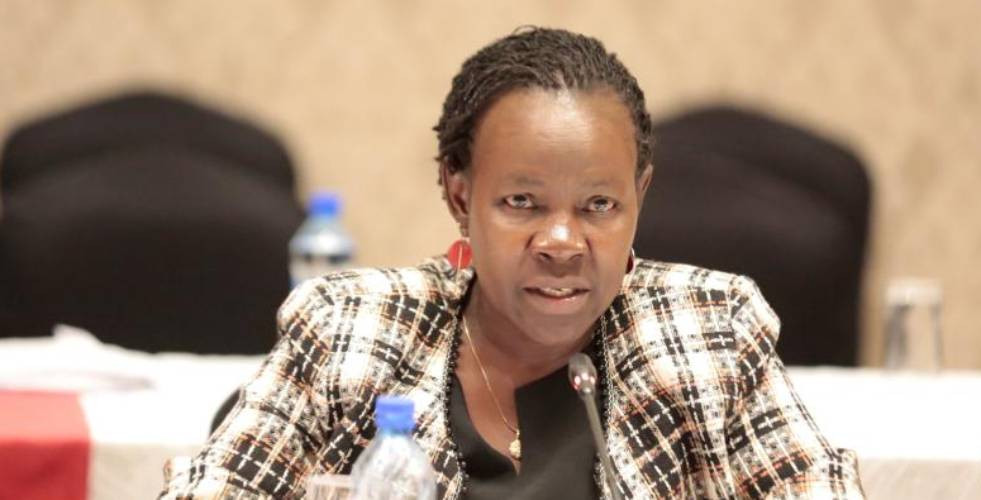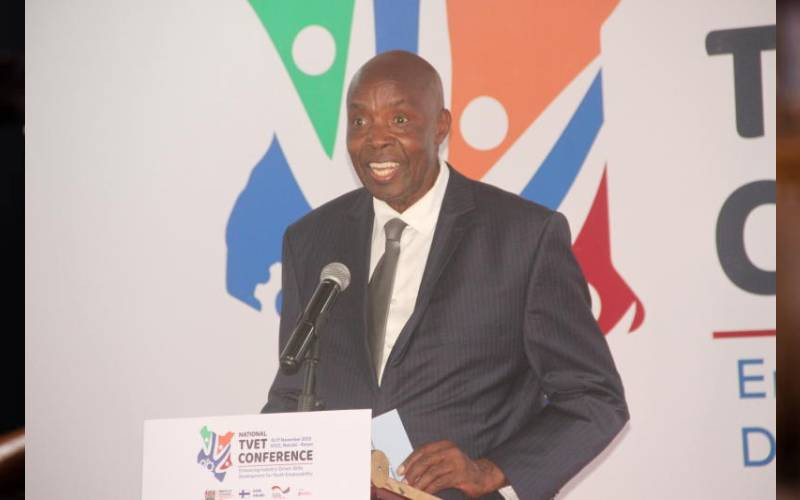The rising number of highly qualified students choosing to join technical, vocational education and training institutions (TVETs), and not university after high school is more than just getting bad career advice.
That simple step could mark the turning point in our higher education. What policies could not unmake, the market is unmaking. Think loudly, empty degree programmes with ‘A’ students enrolling in TVETs.
The debate died when it was suggested the students could transfer. I will revive it. Why should students leave the prestige of university education to a technical or vocational training institute? Let us be bold.
One, it could be an indicator that our students today have lower expectations. They do not believe they are university material and target TVETs; they are surprised when they pass.
That should worry us. Attenuation of self-confidence among the younger generation could lead to a crisis of leadership in both public and private sectors. And possibly preference of expatriates.
The rise of a “helper society” could explain the attenuation of self-confidence. Parents have taken the burden of their children. They visit university to check their children’s progress, apply for them a second degree or even clear for them in high school. They seek jobs for them and organise their weddings.
That makes children over-dependent and shy away from taking risks and making choices.
The stream of bad news since childhood has made our children believe things can only get worse. From corruption to injustice, rarely does good news hit the headlines, even without Covid-19. Children have learnt to be helpless.
We can boldly argue that by choosing TVETs when everyone else is opting for university, these students are choosing their own paths and showing rare boldness by going against the convention; against the grain.
The second reason for the shift to TVETs is the reality of the job market. Our children have seen their brothers and sisters miss jobs with their first or second degrees. Why take the risk?
The economic reality, which had taken so long to sink in, is that with or without a degree, you still need to take care of your basic needs and the end justifies the means. The new mantra is job first then prestige.
Students might have realised it’s easier to get an education than a job. With our higher education open any time, assure yourself a job through TVET then seek higher education.
The job market has also played a part. There is a firm belief that employers are preferring diploma to degree holders. Diploma holders are seen as more reliable, less likely to hop around and more realistic. Degree holders are likely to be more idealistic, seek higher pay and leave any time.
Things will become more interesting; students could start choosing jobs over both TVETs and degrees. Why not go through apprenticeship? Mechanics do that and become experts.
With so much knowledge on any skill easily available, must it be certified? How many of you ask your mechanic, tailor, cobbler or baker for his or her level of education?
Top universities have seen this gap with their micromasters and microbachelors degrees, and courses that take a shorter time and target a specific skill.
Stay informed. Subscribe to our newsletter
Will this trend lead to vocationalisation of higher education? Will universities follow the market by offering diplomas and certificates? There was even a court case in Kenya on that.
Clearly, the shakeout we predicted in higher education is here. Covid-19 will accelerate it. The slowdown in the economy will expose the unmarketable courses. If your job survives Covid-19, it has a future. If it’s advertised during Covid-19, say hallelujah, the future is even brighter.
The shakeout has another facet; expansion of universities after the onset of devolution. We got more universities while online learning and TVETs are gaining currency. My future classes should have students from every continent.
There is another risk to higher education in Kenya that could take us by surprise. Top universities such as Harvard and Oxford have been forced by Covid-19 to offer online classes. They were reluctant before Covid-19 to avoid brand dilution.
Will they use their superior brand and online learning to reach a wider market? Will our students enroll in these universities, particularly in social sciences, instead of local universities? It seems Covid-19 might finally sanitise online learning.
Where do we go from here?
A university that wants to do everything will end up doing nothing. It’s time to specialise. MIT offers social sciences but is famous for technology. By specialising, universities will build a brand then conquer the market through online learning and face-to-face learning, which will be with us for a long time to come.
We are made to interact face to face; those who have used zoom and other applications can attest to that.
Beyond specialisation in courses, we can specialise in levels. All universities want to offer bachelors to PhD degrees. Why not specialise in one level? For example, Harvard Business School has no undergraduate programme in business.
The shakeout is still not complete, it has been forestalled by private universities taking up government-sponsored students. Could this be another factor for shifting to TVETs? Do students think it’s better to go to TVETs than less reputable universities? They can always get into reputable universities later.
Will the government protect our children from universities mounting unmarketable courses to get government money? Remember no university can declare its courses unmarketable. Students learn about degree marketability after graduation, when it’s too late to change course.
Covid-19, government-led expansion of higher education and more information available to students on career prospects will help shake out our higher education.
What will emerge will be a leaner system, more market-oriented and hopefully globally competitive courses. After all, we need such a system to confront the post Covid-19 new order.
Did you choose a TVET over a university? Talk to us...
- The writer is an associate professor at the University of Nairobi
 The Standard Group Plc is a
multi-media organization with investments in media platforms spanning newspaper
print operations, television, radio broadcasting, digital and online services. The
Standard Group is recognized as a leading multi-media house in Kenya with a key
influence in matters of national and international interest.
The Standard Group Plc is a
multi-media organization with investments in media platforms spanning newspaper
print operations, television, radio broadcasting, digital and online services. The
Standard Group is recognized as a leading multi-media house in Kenya with a key
influence in matters of national and international interest.
 The Standard Group Plc is a
multi-media organization with investments in media platforms spanning newspaper
print operations, television, radio broadcasting, digital and online services. The
Standard Group is recognized as a leading multi-media house in Kenya with a key
influence in matters of national and international interest.
The Standard Group Plc is a
multi-media organization with investments in media platforms spanning newspaper
print operations, television, radio broadcasting, digital and online services. The
Standard Group is recognized as a leading multi-media house in Kenya with a key
influence in matters of national and international interest.








